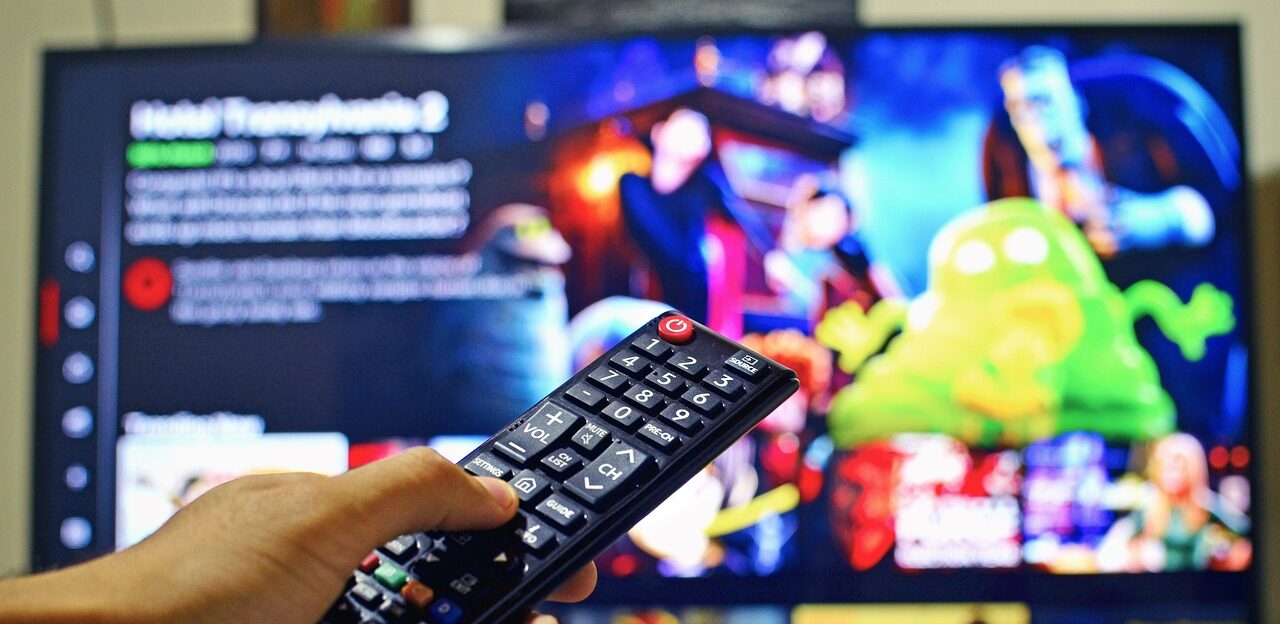Network Usage Fees: Separating Fact From Fiction in the EU “Fair Share” Debate

Following a year of big telecom lobbying for the introduction of EU network usage fees, the European Commission is now about to publish a public consultation on the subject.
Looking at the facts that have emerged over the last year, there are six key takeaways that must be at the centre of any evidence-based debate about telcos’ demands for “fair share” payments.
1.) Consumers drive data traffic, not tech firms
One of the claims that telcos keep repeating is that content and application providers (CAPs) supposedly are the driving force behind growth in internet traffic. Of course, they do this in an attempt to convince the EU that CAPs – such as popular streaming and cloud services – should be mandated to financially contribute to telco infrastructure.
According to ETNO, the main EU lobby for big telcos, “data traffic growth [is] driven by a small number of leading Over-The-Top (OTT) providers.” And this traffic growth is a major problem for telcos they claim. Mobile operators lobby GSMA is also seeking a financial “contribution by big tech companies to the network costs they generate with their traffic.”
Telcos know full well that this is not how the Internet works. Tech companies are not randomly sending data to internet users. As digital rights group Epicenter.Works summarises it: “Data is sent to networks because users are requesting it through the internet connection they pay for.”
A recent Analysys Mason study concluded that “proponents of network usage fees […] tend to characterise traffic as being driven by CAPs, ignoring the fact that it is ultimately the choices made by end users that determine traffic volumes.” In short, it is telcos’ own consumers that are requesting data, and they have already paid telcos to receive it.
2.) Traffic growth is stable at best, not exponential
While telco lobby groups continue to paint a picture of a sector in distress because it has to “deal with exponential traffic growth,” even its own members have to acknowledge that’s simply not the case. The 32% increase in traffic over the last decade that Telefónica recently mentioned at a debate in Brussels, for example, doesn’t even come close to being “exponential.”
In fact, in 2022 various independent experts concluded that data traffic growth is stable at best, and might even be decreasing. A recent study for the German Federal Network Agency asserted that traffic “growth is stable, which is explained by a relative market saturation for streaming services.” And as recently as October 2022, the Body of European Telecom Regulators (BEREC) concluded that “internet traffic has grown steadily over the years. […] There has been no fundamental change in the general growth tendency.”
What is more, telecoms expert Brian Williamson revealed in July that actually “the trend for both fixed and mobile access has been declining growth, i.e. data growth is not exponential.” This makes Williamson wonder whether “not enough data growth” isn’t the real problem that telcos are facing, given that “data growth benefits telcos [since it] encourages customers to migrate to higher priced packages with [more] data.”
3.) Telcos can easily handle traffic growth at negligible cost
The telecom incumbents also argue that “telcos’ financial health is being increasingly undermined” by “capital investments required to deal with exponential traffic growth”. In other words, they want you to believe that insurmountable investments are needed to deal with traffic growth, and that they can’t shoulder that financial burden alone. Instead, other parties should pay telcos for investments into network infrastructure, they argue.
The new Analysys Mason study analysed the numbers and found that the contrary is true: “Network-related costs for [internet service providers] (ISPs) have remained stable over time even while traffic volumes have grown significantly. Data traffic only drives a small share of ISP costs.”
In the 2018-2021 timeframe “network-related ISP costs increased by 3% in total over three years, whilst [global] network traffic increased by over 160%,” the authors underline. This just goes to show that EU telcos are perfectly able to handle steady traffic growth at almost negligible incremental cost.
And again, ETNO’s own members prove to be a valuable source of numbers that refute the telco lobby’s claims. Vodafone’s CTO, for example, proudly told shareholders in June 2022 that the cost per GB of mobile data has fallen faster than traffic growth in the 2017-2021 period. Not only that, looking ahead, he stated that by 2025 Vodafone “will make sure that the reduction in cost to carry data will meet or exceed the data growth.”
It really seems that traffic growth in Europe just isn’t that remarkable at all, let alone that the modest incremental investments required would undermine telcos’ finances.
4.) Telcos benefit from tech’s massive investments in infrastructure
Telco lobbyists keep claiming that “tech giants […] do not adequately contribute to the networks.” Analysys Mason’s October 2022 report, however, shows that tech firms spent €183 billion on internet infrastructure for Europe between 2011 and 2021 alone.
In order to bring online content and apps closer to European end-users, CAPs now spend €22 billion annually on EU digital infrastructure, which is 35% more than during the previous period. And that comes on top of their massive investments in exciting content and applications, which is their core business.
What is more, telcos also benefit from these infrastructure investments. Europe’s big telecom operators and other ISPs save roughly €1 billion per year in network and transit fees because of tech’s infrastructure spending according to calculations by Analysys Mason. For example, local caching servers put in place by CAPs bring content as close to the end-user as possible, reducing the amount of work for telcos.
Tech companies are doing their part, they invest in network infrastructure to give their customers the best possible experience. Some big telcos, on the other hand, appear unwilling to recognise that this is a mutually-dependent relationship, in which they also benefit from the steady stream of innovative services and content coming from tech.
The Communications Chambers report dissects telcos’ flawed reasoning with a simple question: “Who would want a cable running through their home if it was not for the content provided by tech?” After all, it is consumer demand for online content that actually “drives demand and revenues for telcos.”
5.) The Open Internet is under threat, regardless of what telcos say
For some reason, proponents of network fees seem to think they can convince people that their demands for traffic-based payments would not undermine Net Neutrality. ETNO repeatedly said that they “are not asking to amend the current EU Open Internet Regulation,” which prohibits the discriminatory treatment of internet traffic.
Nevertheless, their campaign is all about treating internet data differently and strengthening their control over users’ access to the Internet. The introduction of network fees could lead to the preferential treatment of companies who (can afford to) pay ISPs in order to reach customers. And inevitably it would discriminate against those who cannot – or refuse to – pay.
So, is ETNO saying that all traffic is equal, but that some paid-for traffic would be treated “more equal” by telcos? Members of the European Parliament (MEPs) were quick to realise that telcos’ reassuring words are not based in fact. In a joint letter, MEPs warn that telcos getting their way “would reverse decades of successful internet economics by requiring the providers of websites and applications to pay fees to ISPs that have never existed before.”
Access fees “would abolish key Net Neutrality guarantees that Europeans fought for,” according to the MEPs. Also regulators body BEREC recognised in October that the “ETNO proposal could present various risks for the internet ecosystem.”
6.) Evidence shows that taxing internet traffic just doesn’t work
Finally, telcos are selling this fallacy that network fees would “unlock socio-economic opportunities for citizens and businesses.” However, they conveniently fail to mention the evidence from the only country that has actually tried this before. South Korea introduced a similar model in 2016, and experts agree the experiment failed.
As the WIK study underlines, consumer prices went up dramatically after South Korea introduced the sending-party-network-pays (SPNP) model. The content offering also became less diverse and the Internet became slower – while investments in network infrastructure actually declined.
In fact, this policy led to multiple small and large providers of content and apps deciding to exit the Korean market and relocate their data centres abroad. Earlier this month, the European Internet Exchange Association (Euro-IX) warned the Commission that the “mandatory termination charges implemented in South Korea […] resulted in reduced quality and security of the services provided to end-users.”
Analysys Mason foresees that the introduction of EU network fees would result in users having “fewer choices and a lower quality of experience, and fewer services for businesses could also slow digitalisation.” Indeed, a network usage fee would ultimately end up hitting Europeans directly in their pockets, in the form of more expensive cloud and streaming services.
There simply is no evidence to justify network usage fees
A year down the road, the facts speak for themselves. Telecom operators have been very vocal, but they’ve failed to substantiate their claims. The evidence presented in recent months only highlights the negative consequences of taxing internet traffic. BEREC’s recent assessment could not be clearer, concluding that it had “found no evidence that such mechanism is justified.”
Professor Barbara van Schewick, a world leading expert on Net Neutrality, said about the BEREC report: “That’s how regulators nicely say: This a terrible idea with no justification and would likely harm the single most successful telecommunications system ever invented.” Professor K.S. Park, a renowned South Korean academic, told EU lawmakers in a joint op-ed with Konstantinos Komaitis: “Bad ideas tend to be solutions to problems no one really has. And, truly, there is no identifiable problem in the interconnection market.”
The European Commission’s upcoming public consultation is a welcome opportunity to finally inject the “fair share” debate with facts. Let’s hope the Commission takes an evidence-based approach, so that this misguided idea can be rejected once and for all.








